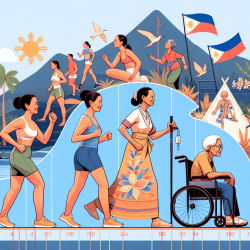Introduction
As practitioners dedicated to improving mental health outcomes, it's essential to continuously refine our approaches based on empirical evidence. A recent study titled Measuring the Mental Health-Care System Responsiveness: Results of an Outpatient Survey in Tehran provides valuable insights into the responsiveness of mental health services. This blog explores how these findings can enhance the delivery of mental health care, particularly in online therapy settings.
Understanding Responsiveness
Responsiveness in health care refers to how well the system meets patients' legitimate expectations. The World Health Organization (WHO) identifies eight domains of responsiveness, including dignity, confidentiality, autonomy, and access to care. In the Tehran study, 47% of participants reported poor responsiveness, highlighting areas for improvement.
Key Findings and Implications
The study found that confidentiality and dignity were the best-performing domains, while autonomy, access to care, and quality of basic amenities lagged behind. This suggests a need for practitioners to focus on enhancing patient autonomy and improving access to care, especially in online settings where physical barriers are minimized.
- Confidentiality and Dignity: These domains were rated highly, indicating that maintaining trust and respect is crucial. Online therapy platforms like TinyEYE can leverage secure communication channels to uphold confidentiality and foster dignity in interactions.
- Autonomy: Patients desire more involvement in their care decisions. Practitioners can enhance autonomy by incorporating shared decision-making tools and ensuring patients have choices in their treatment plans.
- Access to Care: Access remains a challenge, particularly for those with lower social status. Online therapy can bridge this gap by providing flexible scheduling and reducing travel barriers.
Social Status and Responsiveness
The study highlighted that individuals with lower subjective social status (SSS) experienced poorer responsiveness. This underscores the importance of tailoring interventions to address socioeconomic disparities. Practitioners should consider socioeconomic factors when designing care plans and strive to create equitable access to services.
Actionable Steps for Practitioners
To enhance responsiveness in mental health care, practitioners can:
- Utilize data-driven tools to monitor and improve patient autonomy and engagement.
- Implement secure and user-friendly online platforms to ensure confidentiality and dignity.
- Develop outreach programs targeting underserved populations to improve access to care.
Conclusion
The Tehran study provides a roadmap for improving mental health care responsiveness. By focusing on autonomy, access, and addressing socioeconomic disparities, practitioners can enhance patient experiences and outcomes. For those interested in further exploration, the original research paper offers a comprehensive analysis of these findings.
To read the original research paper, please follow this link: Measuring the Mental Health-Care System Responsiveness: Results of an Outpatient Survey in Tehran.










